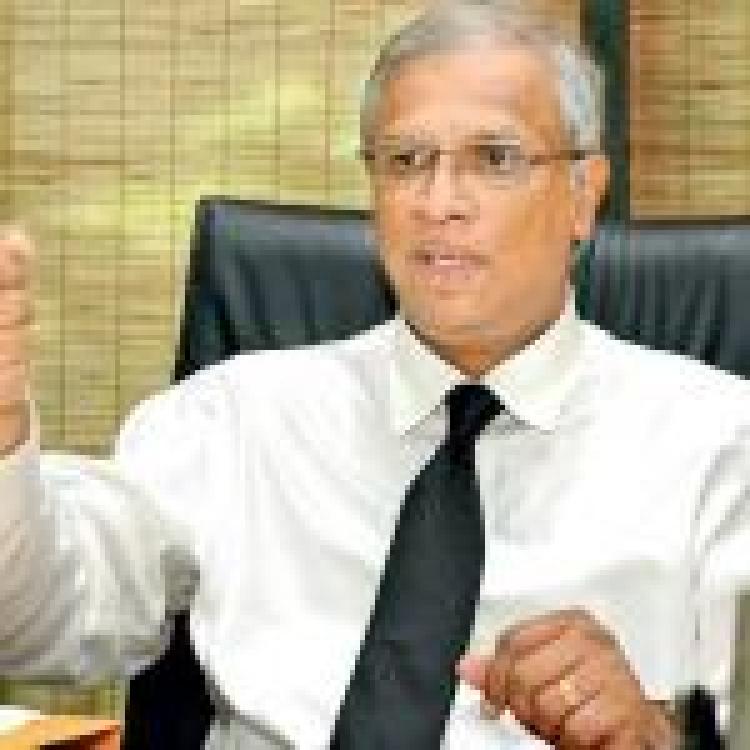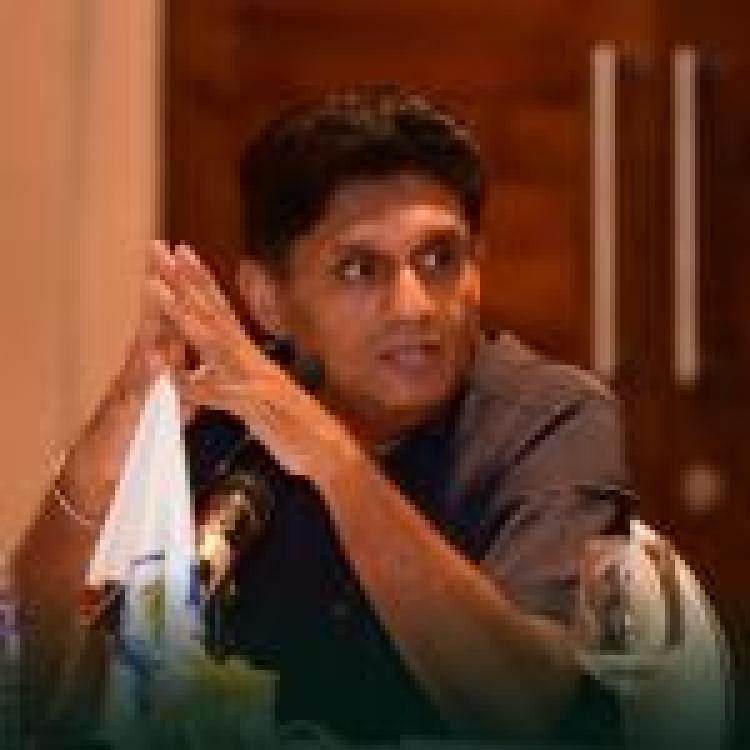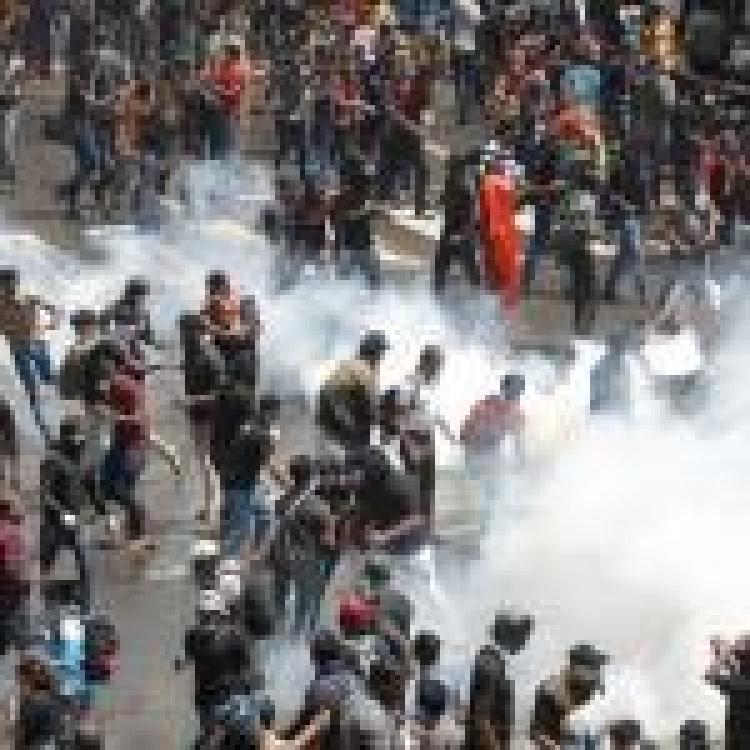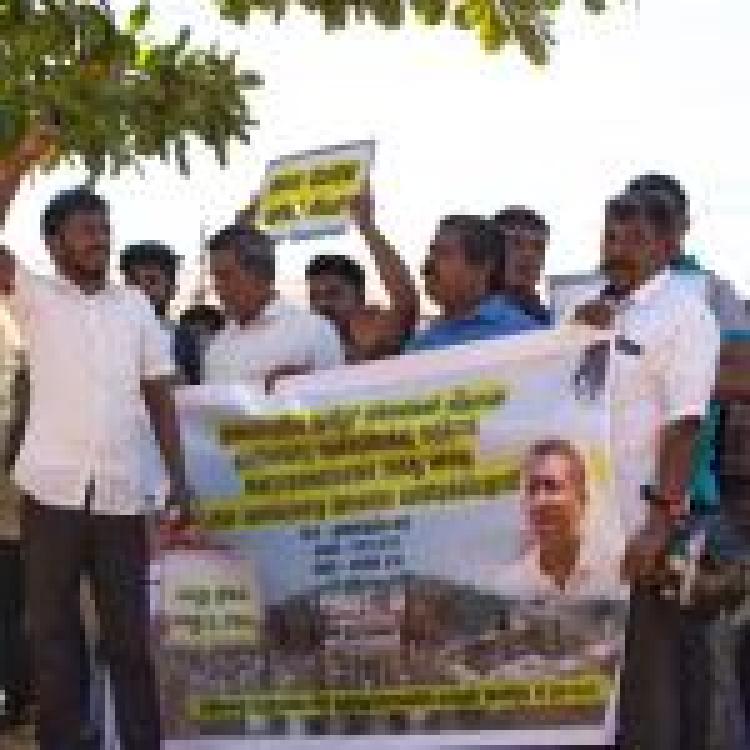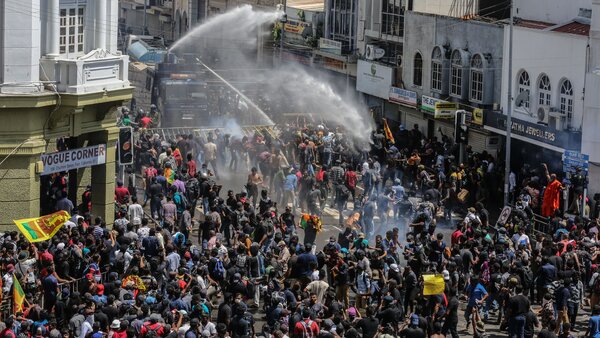
Following a brutal crackdown on demonstrators and the establishment of "high-security zones" in Colombo, Human Rights Watch has urged the Sri Lankan government to reverse course and respect people's right to protest.
The statement follows a sweeping crackdown on demonstrators last week that saw the arrest of 84 people, who had taken to the streets to demand the release of student activists detained under Sri Lanka's notorious Prevention of Terrorism Act. The police reportedly used tear gas and water cannons to disperse protesters last Saturday.
The day prior, the Sri Lankan government established high-security zones in central Colombo, requiring that any demonstrations have the written consent of Sri Lanka's police. Within these high security zones, police are provided wide-ranging powers including the ability to arrest anyone within them, with Sri Lanka's High Court being the only authority able to grant bail to those detained. Human Rights Watch warns:
"These broad, severe restrictions threaten the excessive use of force and prolonged detention for people exercising their rights to peaceful assembly and expression".
“The sweeping new regulation severely restricting public protest in Colombo is President Ranil Wickremesinghe’s latest desperate attempt to stop people from protesting,” said Meenakshi Ganguly, South Asia director at Human Rights Watch.
“While the country is struggling to deal with a deep economic crisis, the government should be making it easier for people’s voices to be heard, not throwing them in jail when they speak out” she adds.
Sri Lanka's police justified the crackdown on demonstrators on 24 September by claiming that the demonstration was “organised illegally without any permission.”
Ganguly further warned that:
“Sri Lankans peacefully calling for reforms and government accountability for the economic crisis now face even greater risks of violence, arrest and prolonged detention”.
She also urged countries at the UN Human Rights Council to "do all they can to help people carry out their basic rights and liberties”.
Sri Lanka's president has declared several areas in Colombo, including Parliament, Supreme Court complex and the President's Secretariat, amongst others, as high security zones.
Read the full Human Rights Watch statement here.

